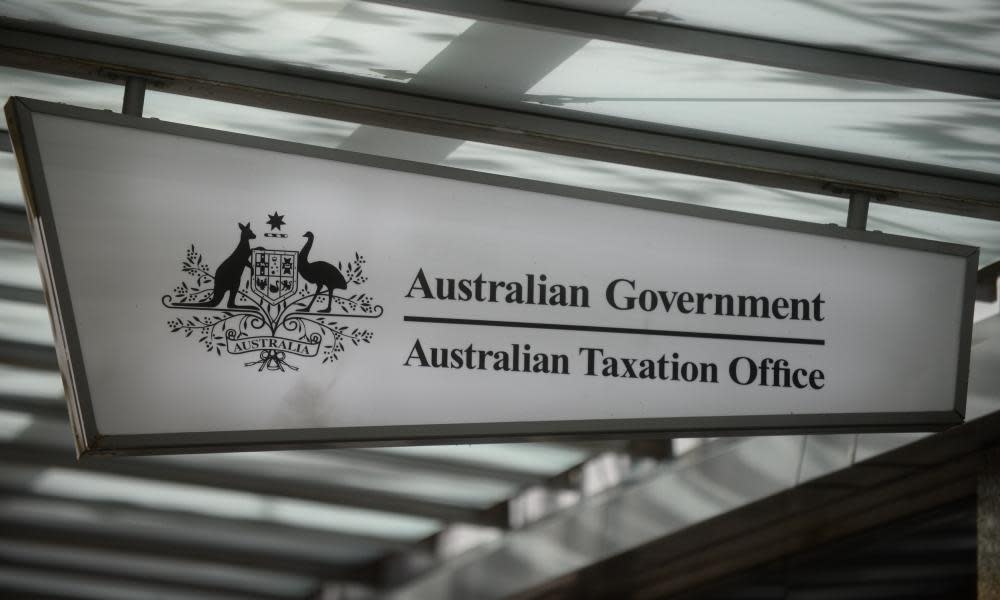More than 8,000 businesses caught up in 'robodebt 2.0' jobkeeper compliance blitz by ATO

The government has told more than 8,000 small business owners they may have to pay back jobkeeper payments they have relied on for income throughout the coronavirus pandemic, after a crackdown on compliance for the wage subsidy scheme.
The Australian Taxation Office has confirmed the “compliance” checking procedure revealed by Guardian Australia on Thursday, which has been dubbed “robodebt 2.0” by affected businesses, has been applied to many more people than isolated individuals.
The targets of the procedure are sole traders who began their businesses recently and therefore have not been reporting their income for a full financial year.
Affected businesses, many of which have received the $1,500 a fortnight wage subsidy since May, were sent an email by the ATO on Monday warning that because they “started business on or after 1 January 2020”, their “entity would not have assessable business income” from the 2018-19 financial year, and therefore could not prove the 30% reduction in revenue required to access jobkeeper.
default
Other affected business owners who contacted Guardian Australia said they had set up as sole traders before 1 January but after the end of the previous financial year.
The ATO’s website describes how businesses started after 1 January are eligible for jobkeeper, outlining an alternative test for proving a reduction in revenue, by comparing the average monthly turnover in February with turnover in following months.
Since reporting on the crackdown, the Guardian has been contacted by numerous affected sole traders, including childcare providers and the owner of a domestic cleaning business, who said she was told by an ATO call centre supervisor she was “exactly the type of person jobkeeper was designed to support” after querying Monday’s email.
Other sole traders the Guardian has spoken to have also raised concern about conflicting eligibility information on the ATO’s website and a lack of communication or request for further financial history from the ATO.
A spokeswoman for the ATO told the Guardian: “We know that the overwhelming majority of Australians are honest and want to see this assistance reach those who need it most.”
Related: Tax office tells some businesses who received jobkeeper they were not entitled to payments
She said the emails sent to sole traders “seek information ... to support their claim to jobkeeper”, but the correspondence seen by the Guardian does not clearly request this.
“Before reaching out to the business, the individual client records for each of their income tax returns or activity statements are examined to determine that they were carrying on a business on 1 March 2020 and held an ABN on 12 March 2020,” she said.
David Geoffrey Hall, a Melbourne-based sole trader who started his marketing business in February, experienced a sufficient reduction in turnover as a result of Covid-19 to qualify for jobkeeper.
He had received $6,000 in jobkeeper payments covering April and May, when he was told he was ineligible and might have to repay the money.
“That’s all it said, it was super vague,” Hall said. “There’s no details about when you might have to pay it back.
“I’ve already spent the money surviving through the crisis, on rent and groceries. I have no other income coming in, I don’t know how I’d pay it back.”
Hall said he was consulting his accountant before taking further action, but noted a description on the ATO’s website of a sample sole trader, which he said matched “almost exactly my situation”.
“I’m baffled by this,” Hall said. “I can’t help but feel this is some kind of robodebt 2.0, like there’s been a data-matching exercise and then automated emails sent out.”

 Yahoo News
Yahoo News 
